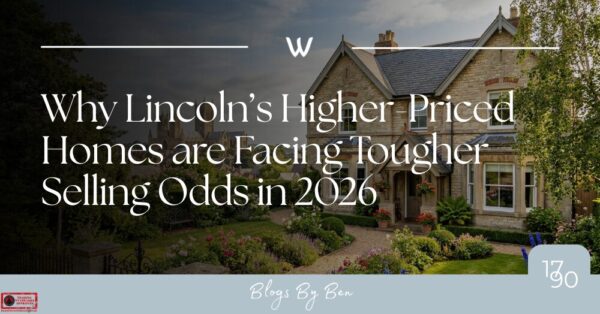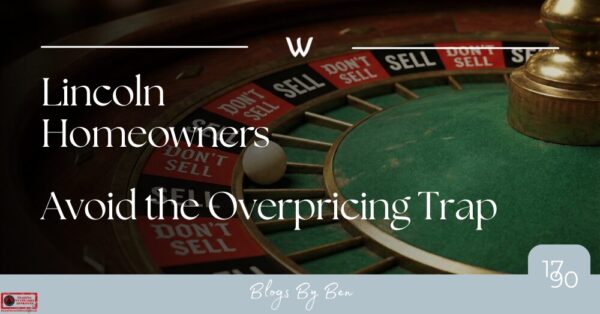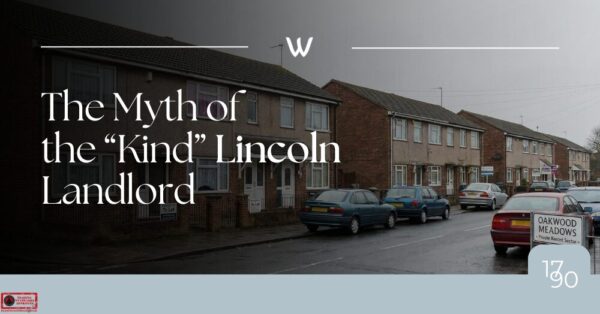Well, what a weekend that was. Street parties, gatherings in the park, the bunting, egg & cress sandwiches, union jack flags, cheese & pineapple on cocktail sticks, and let’s not forget the trifle, a great Platinum Jubilee Party. And no decent party is worth its salt without a game or a quiz.
So, if you have post-Jubilee blues, let me ask you, how much was the average Lincoln house worth in 1952?
To start with, let me look at what a property is worth today in Lincoln.
The average price paid for a property in the Lincoln area
in the last 12 months was £236,200.
Now, let’s go back to 1952. Sir Winston Churchill was the Prime Minister, Newcastle won the FA Cup, London was covered in the Great Smog, free prescriptions on the NHS ended (it cost 1 shilling or 5p in new money), and King George IV, at the age of 56 passed away on the 6th February, meaning Princess Elizabeth became the Queen – as for housing …
The average price of a Lincoln home in 1952 was £1,929.
This means Lincoln house prices are 121 times higher since 1952.
Yet over the last 70 years, the country has been subjected to 4.5% per annum inflation.
The 1952 Lincoln home is equivalent to £37,089 today
when adjusted for inflation.
This means Lincoln house prices have increased by 504.8% in real terms since 1952.
So, does that mean house prices are more expensive today compared to 1952?
In 1952, the average annual male wage was £452, 8 shillings and 1 penny, meaning the average Lincoln house was 4.26 times the average value of a wage. Today the average home is 8.85 times the average wage.
Yet let us not forget the average mortgage payment in 1952 was £11 per month. The average Brit earned £34 per month, meaning 32.3% of the household income was going on mortgage payments, whilst nationally today, according to the Nationwide, it stands at 28%.
It’s cheaper, in real terms, to buy a property in 2022 than in 1952.
And that’s the point, something things in ‘real terms’ were more expensive and some cheaper 70 years ago. For example, in 1952, petrol was equivalent to £1.02 per litre, a pint of beer £2, half a dozen eggs £2.20, cheddar cheese £2.40 per 500g, a basic radio £430, a Hoover £530 and a 12-inch TV £1,600.
So back to property, the Queen’s reign has seen some amazing house price rises in the UK, yet that growth hasn’t always been in a constant upward direction, as we have had a couple of dips along the way.

We had a house price crash in 1990, when the average value of a Lincoln property dropped from £58,037 to £48,066 in 1996, only for them to start rising again.
Lincoln saw another house price crash between 2008 and 2009, and the average house price dropped from £173,615 to £148,009 in a year.
So, what else has changed about property and housing since the Queen came onto the throne?
In 1952, only 32% of people owned their own home,
whilst 50% of people rented from a private landlord and 18% rented a council house.
By the time of the Silver Jubilee in 1977, 56% of people owned their own home, with 12% of people privately renting and 32% rented from the council.
Come the Golden Jubilee in 2002, 70% of people owned their own home, with 11% of people privately renting and 19% rented from the council.
Today, 63% of people own their own home, 20% of people
privately rent and 17% rent from the council.
So, to conclude, as we look forward into the 21st century, I am sure the property market will be different again in 70 years.
I hope you enjoyed reading this article and do share it with your friends if you find it interesting.
P.S. for all you Rightmove fans, the average Lincoln terraced home in 1952 was worth £1,386, and a semi in Lincoln could be bought for, on average, £1,594.



